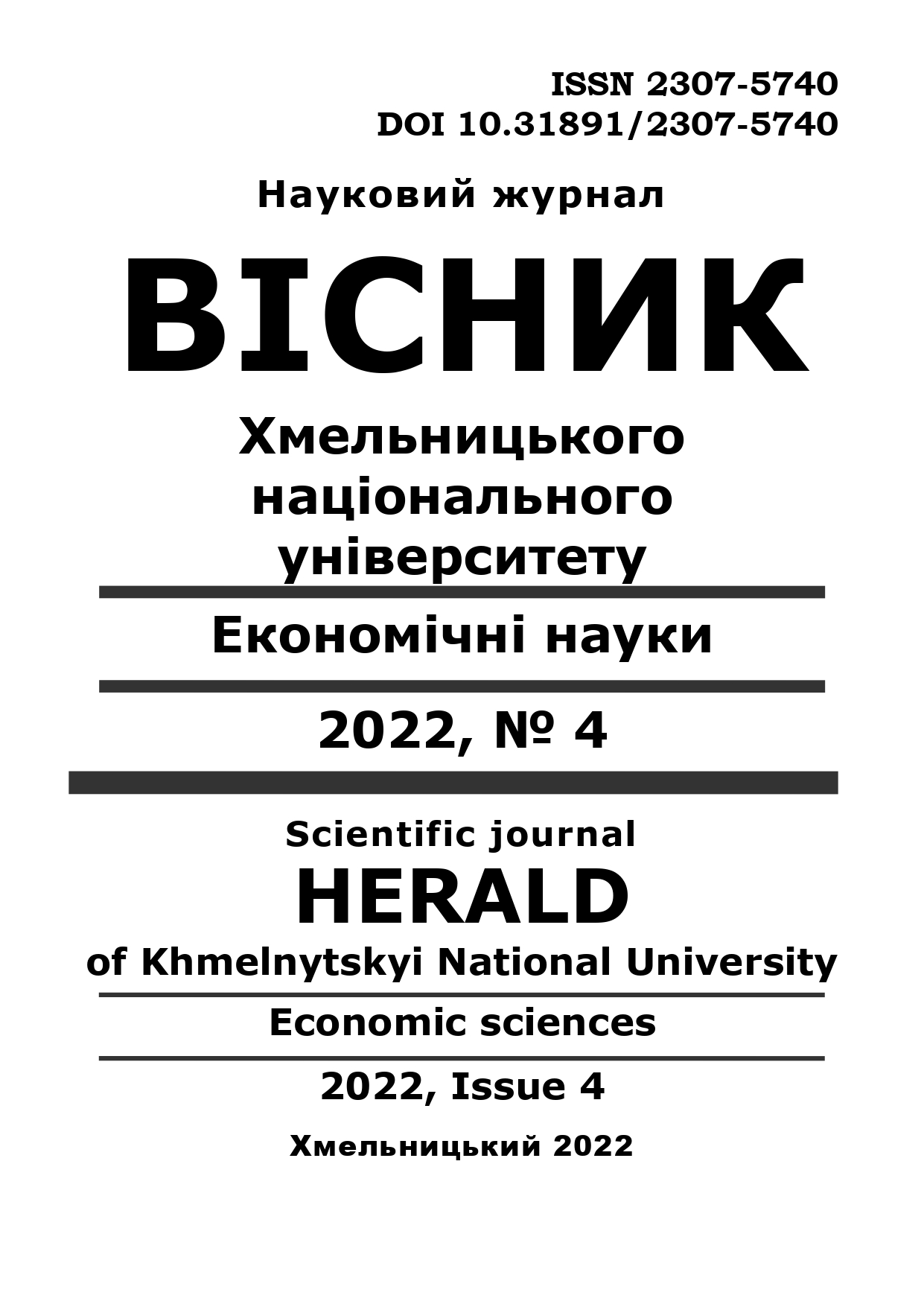ГЛОБАЛЬНІ ВИРОБНИЧО-ЗБУТОВІ ЛАНЦЮГИ У АГРОПРОДОВОЛЬЧІЙ СФЕРІ: СУЧАСНА ПОЛІТИКА ТА ПРАКТИКА
DOI:
https://doi.org/10.31891/2307-5740-2022-308-4-22Ключові слова:
глобальні виробничо-збутові ланцюги, додана вартість, експорт, сільське господарство, харчова промисловість, торгівельна та інвестиційна політика, прямі іноземні інвестиціїАнотація
Стаття присвячена дослідженню глобальних виробничо-збутових ланцюгів (ГВЗЛ) у агропродовольчій сфері, особливостям залучення до них країн світу, зокрема, України. Проаналізовано політику та практику в цій сфері, перспективи для України, можливі підходи до регулювання процесу інтеграції до аграрно-продовольчих ГВЗЛ.
Було визначено, що розвиток глобальних ланцюгів створення доданої вартості може мати низку позитивних проявів у сфері АПК – це й спрощення механізму інтеграції країн у глобальний ринок продовольства, зближення національних продовольчих ринків, розповсюдження прогресивного досвіду, сприяння сталому розвитку. Існує позитивний та значущий зв'язок між ПІІ та показниками, які характеризують рівень залучення країни до агропродовольчих ГВЗЛ, а також створення внутрішньої доданої вартості в глобальних ланцюгах. Це актуалізує питання вдосконалення інвестиційної, торговельної політики, створення відповідних інституційних умов в країні, завдяки чому можливим буде більш активне включення українських представників агропродовольчого бізнесу у ГВЗЛ. Серед важливих напрямків вдосконалення інституційних умов – чітка, прозора та передбачувана інвестиційна політика, сильний захист інвесторів (включаючи компенсацію за експропріацію), надійний захист прав землекористування та прав на землю, прав інтелектуальної власності, податкові пільги. Значний позитивний вплив можуть мати динамічні сільськогосподарські інноваційні системи, зокрема, добре розвинені дослідницькі мережі та інноваційні кластери, агропродовольчі науково-дослідні установи, державні дорадчі служби. Політика державної підтримки зв’язків у ланцюгах поставок може зіграти важливу роль у сприянні розвитку в країні ділової активності багатонаціональних підприємств, які виступають найбільш потужними донорами прямих інвестицій в світі. Пріоритети можуть включати добре розроблену нормативну базу контрактного сільського господарства, системи виконання контрактів та ін.



